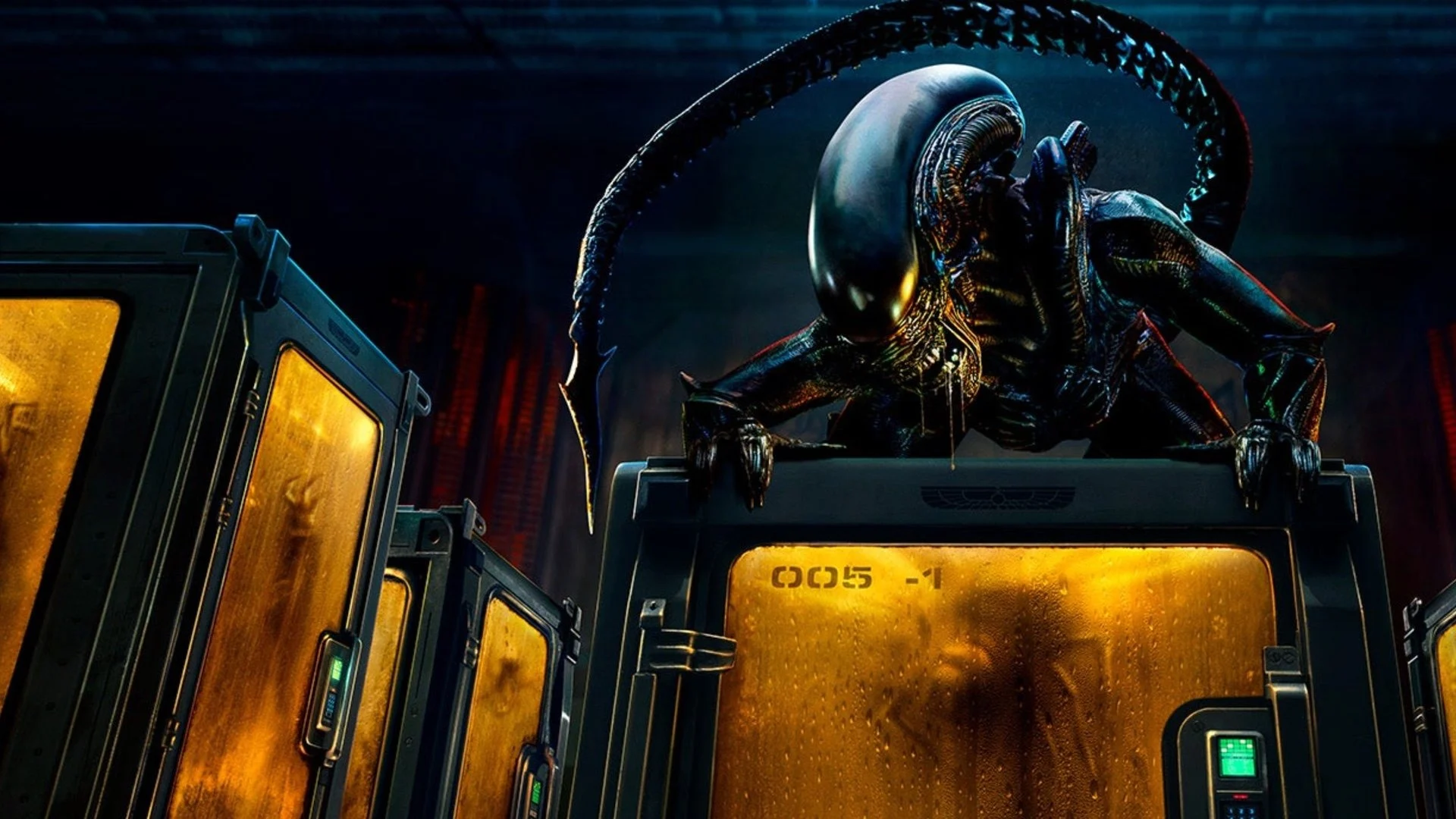If you’re flipping through channels in August 2025, there’s a good chance the chilling buzz around “Alien: Earth” will catch your attention. This isn’t just another reboot or franchise spin-off. Instead, it’s an ambitious sci-fi horror series that grabs the legacy of the legendary “Alien” universe and runs, or rather sprints, in a bold new direction.
From the get-go, “Alien: Earth” pulls viewers into a tense, intricate tale. Set in the year 2120 — two years before Ripley’s iconic horror began — the show introduces the catastrophic crash of the vessel Maginot on Earth. This event shakes the world inside the story, but also shakes up the well-worn formula familiar to longtime fans. As the survivors, led by a young woman named Wendy and a band of tough tactical soldiers, scramble to contain the chaos, they face not only their fears but an extraterrestrial nightmare that is about to rewrite the meaning of survival.

Basic Facts and Structure
The debut took place on August 12, 2025, on FX and Hulu for American audiences. International fans got their tickets to terror just a day later, on August 13, via Disney+. Noah Hawley, known for his work on “Fargo,” steps into the role of creator, with Ridley Scott’s masterful touch guiding as Executive Producer. This combination alone raises the bar for expectations.
The primary cast adds significant gravitas and intrigue:
- Sydney Chandler plays the central, resilient Wendy.
- Timothy Olyphant, ever the screen-grabber, stars as Kirsh.
- Alex Lawther brings depth as Joe Hermit.
- Essie Davis, sharp and complex, is Dame Sylvia.
- Samuel Blenkin, Babou Ceesay, and Adarsh Gourav round out the ensemble as Boy Kavalier, Morrow, and Slightly, respectively.
This first season unfolds over eight tightly crafted episodes, with a weekly release schedule that stokes suspense and conversation from mid-August to late September. The two-part premiere immediately plunges you into the high-stakes drama, making that first week a real event.
The Franchise’s Risky Leap Forward
“Alien: Earth” doesn’t play it safe. Hawley’s creative direction refuses to echo the movies scene-for-scene. Instead, it builds a dense, unsettling atmosphere. You notice almost immediately: this is not just horror for horror’s sake. It weaves in layered questions about identity, mortality, and even childhood through a subplot involving mind transfers into synthetic bodies. Some might expect nothing more than running and screaming, but instead will encounter a surprising, cerebral tension.
The visual palette leans hard into realism. Ridley Scott’s influence is undeniable, especially when it comes to practical effects. That iconic Xenomorph, more menacing than ever, comes to life on set — using practical costumes and effects. Sydney Chandler recalled how unsettling it felt to face those Xenomorph performers in person. This choice adds weight and texture to every scene, making the terror not just believable but palpable.

Critical Praise So Far
Early reviews land squarely in the positive camp. It’s not often a long-running franchise gets called “the best entry since 1986” by the Financial Times, but “Alien: Earth” earned that rare endorsement. Many critics found themselves surprisingly moved by the philosophical depth and fresh perspective.
Tom’s Guide even suggested it might be their “favorite show of all time,” underlining that the “Alien” universe is not only alive but thriving on television. That’s no small feat given how iconic and hard-to-please this fandom can be.
But while much of the press celebrates the inventive take and narrative confidence, some caution signs still flicker. The road of adaptation comes full of potholes, and not every experiment lands perfectly.
Key Strengths
Let’s break down what critics and audiences praise the most:
1. Narrative Bravery
- Hawley doesn’t recycle the same old formula. He takes viewers on a new journey.
- The story sweeps in fresh, bold ideas while staying true to what made the original terrifying.
- Stakes stay high, but so does emotional depth.
2. Rich Character Work
- Characters feel genuine, layered, and surprisingly sympathetic — even the synthetic children.
- Performances shine across the ensemble, crafting believable tension and heartbreak.
- Each episode reveals more complexity, giving even fans new to “Alien” something to latch onto.
3. Jaw-Dropping Practical Effects
- The Xenomorph scares are real because the monsters are real — at least to the actors on set.
- Cast members often mention the “trippy, unsettling” feeling of filming against practical effects rather than just green screens.
- These choices heighten atmosphere, making every shadow suspect and every screech dangerous.
Key Weaknesses
No journey through uncharted territory comes without some stumbles. Here’s where “Alien: Earth” draws criticism:
1. Pacing Problems
- Several reviewers argue the show spends too long setting the stage.
- Some episodes feel stretched, with action and revelations trickling in slow drips.
- The momentum doesn’t fully build until the last third of the season, which can frustrate impatient audiences.
2. Overloaded Motifs
- The Peter Pan motifs — used through narrative and characterization — get a bit heavy-handed.
- Frequent symbolic references feel forced rather than organic, undermining some otherwise poignant moments.
- This detracts from the novelty, sometimes distracting viewers from the core sci-fi horror tension.
3. Familiarity Breeds Contempt
- While honoring the franchise’s legacy is important, a few critics think “Alien: Earth” tries too hard to bridge new and old.
- It can lean on familiar franchise beats, straining to break free and create its own identity.
- The struggle to blend a legacy horror experience with the demands of serialized television sometimes leads to narrative tedium.
Moment by Moment: How the Experience Plays Out
From episode one, it’s clear Hawley will not grant the audience easy answers. The show revels in ambiguity, keeping viewers guessing about motives and outcomes. The cast, especially Chandler and Olyphant, handles this shifting emotional terrain with skill, moving from terror to tenderness in a heartbeat.
Each week’s episodes build suspense, not just with alien threats but with philosophical dilemmas. When the children in the story wake inside new, synthetic bodies, the sense of unease cuts deeper than creature horror alone. This is the rare show that trusts its viewers to follow along, even when the path disappears into darkness.
Between the frightening set pieces and existential questions, the sound design and lighting become silent characters — always unsettling, never letting you feel quite safe. Even hardcore genre fans might find themselves glancing over their shoulder after a particularly intense sequence.
However, as you move from one installment to the next, you may notice some drag. The narrative sometimes takes its time laying out complex stakes, which can slow the heartbeat for those craving relentless action. On the other hand, when the story finally accelerates, it does so with the power and precision longtime “Alien” fans crave.
A New Era, and a Painful Balancing Act
Balancing franchise reverence with new storytelling demands might be the toughest job of all. “Alien: Earth” manages this better than most, even if it stumbles in spots. The visuals never feel cheap, and the atmosphere recalls the best moments Ridley Scott imagined back in 1979. Still, some of the philosophical layering and thematic repetition might not land for every fan.
For those who love both the Original and “Aliens,” there’s plenty to devour. Yet, don’t expect all the traditional genre thrills up front. Hawley prefers the slow burn, building toward a final act that pays off the investment. Patience is rewarded — with terror and with payoff — but not every viewer will enjoy the waiting.

Verdict: Alien Earth (2025) BRNG?
So, does “Alien: Earth” bore? In a word: no. It pushes boundaries, dares to provoke, and trusts its audience to keep up. The slow burns may try your patience, and the symbolic touches may occasionally grate, but the show’s courage and craft just cannot be ignored. If you seek a show that challenges as much as it entertains — while still dropping your jaw with gruesome practical effects — give this one your time.
Score: 8.4 out of 10
This score lands solidly in the “not boring at all” range. That said, the journey is for thinkers and fans who like their horror delivered with a side of existential crisis, not just relentless chases down dark corridors. For the rest, even if you drift in and out during the slowest episodes, the payoffs — visual, emotional, and philosophical — make “Alien: Earth” one of 2025’s must-watch genre series. It’s a bold step forward for “Alien,” both as a legacy and as a reimagined television event.





